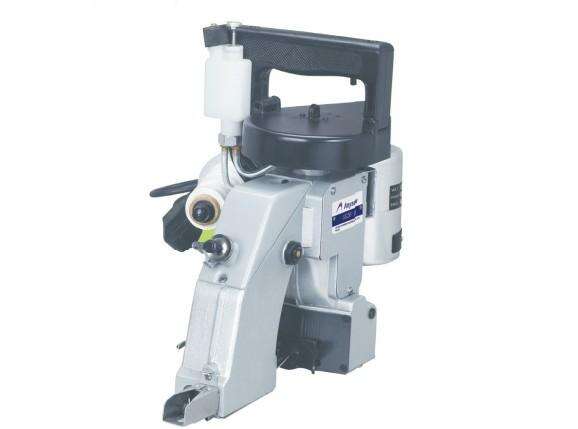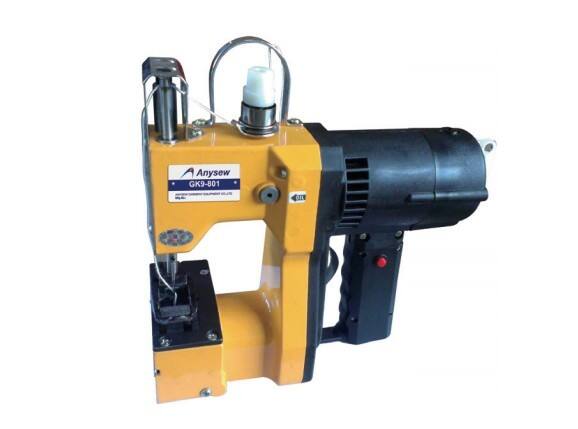Փաթեթավորման արդյունավետության հեղափոխություն՝ օգտագործելով ժամանակակից կնքման տեխնոլոգիաներ
Ժամանակակից արագընթաց արդյունաբերական միջավայրում ավտոմատ գումարական փակող մաքինաներում դարձել են անփոխարինելի գործիքներ այն բիզնեսների համար, որոնք ձգտում են արդյունավետ դարձնել իրենց փաթեթավորման գործողությունները: Այս բարդ սարքերը ներկայացնում են զգալի առաջընթաց ավանդական ձեռքով փաթեթավորման մեթոդներից՝ առաջարկելով աննախադեպ մակարդակի արդյունավետություն, հետևողականություն և հուսալիություն փաթեթավորման գործընթացներում: Քանի որ արդյունաբերությունները շարունակում են զարգանալ և հարմարվել աճող արտադրական պահանջարկին, ավտոմատ փաթեթավորման մեքենաները դարձել են կարևոր ներդրում այն ընկերությունների համար, որոնք ձգտում են պահպանել մրցունակությունը և համապատասխանել ժամանակակից փաթեթավորման չափանիշներին:
Ավտոմատ պայուսակների փակող մեքենաների ներդրումը արտադրական գծերում փոխել է ձեռնարկությունների տեսակավորման գործընթացներին մոտենալու եղանակը: Այս նորարարական համակարգերը ոչ միայն արագացնում են տեսակավորման գործընթացը, այլև ապահովում են բարձրորակ ամրացում, նվազեցված աշխատանքային ծախսեր և բարելավված ապրանքի պաշտպանություն: Արդյոք սննդամթերքի, գյուղատնտեսական ապրանքների կամ արդյունաբերական նյութերի հետ աշխատելիս՝ այս մեքենաները ապացուցել են իրենց արժեքը տարբեր ոլորտներում:
Ավտոմատ պայուսակների փակման համակարգերի հիմնական օգուտներ
Բարձրացված գործառնական արդյունավետություն
Ավտոմատ պայուսակների փակող մեքենաները կտրուկ ավելացնում են արտադրության արտադրողականությունը ձեռքով փակման մեթոդների համեմատ: Մեկ մեքենան կարող է մշակել հարյուրավոր պայուսակներ ժամում՝ պահպանելով հաստատուն արագություն և ճշգրտություն երկարատև շահագործման ընթացքում: Այս բարձրացված արդյունավետությունը անմիջապես թարգմանվում է բարելավված արտադրական հզորության և նվազեցված շահագործման կետերի:
Ավտոմատ պայուսակների փակող մեքենաների համակարգային մոտեցումը վերացնում է ձեռքով կնքման գործընթացներին բնորոշ բնական տատանումներն ու անհամապատասխանությունները: Աշխատողներին այլևս կարիք չկա ժամանակ ծախսեն ներդիրների ճիշտ հարթությունն ապահովելու կամ կնքման ընթացքում ճնշումը հաստատուն պահելու համար, քանի որ մեքենան այս ասպեկտները կատարում է ավտոմատ ռեժիմով՝ մեխանիկական ճշգրտությամբ:
Բարձր որակի և հուսալիության կնքում
Ժամանակակից ավտոմատ պայուսակների փակող մեքենաներն օգտագործում են առաջադեմ կնքման մեխանիզմներ, որոնք ապահովում են հզոր, կեղծման վկայակուլներ ցույց տվող փակումներ: Ճշգրիտ կերպով կարգավորված ճնշման և ջերմաստիճանի պարամետրերն ապահովում են, որ յուրաքանչյուր կնքումը համապատասխանի ճշգրիտ ստանդարտներին, ինչը նվազեցնում է ապրանքի աղտոտման կամ տեղափոխման ընթացքում արտահոսքի ռիսկը:
Այս մեքենաները հաճախ ներառում են բազմաթիվ կնքման մեթոդներ, ինչպիսիք են ջերմային կնքումը, կարումը կամ ժապավենի կիրառումը, որոնք տալիս են տարբեր փաթեթավորման պահանջներին համապատասխանելու հնարավորություն: Կնքման որակի հաստատունությունը օգնում է պահպանել ապրանքի թարմությունը և երկարաձգել իր պիտանիության ժամկետը, ինչը հատկապես կարևոր է սննդամթերքի և գյուղատնտեսական արտադրանքների համար:
Տնտեսական ազդեցություն և ներդրումների վերադարձ
Աշխատավարձի expanses նվազեցում
Ինքնաշխատ տոպրակների փակող մեքենաների կիրառումը զգալիորեն կրճատում է փաթեթավորման գործընթացների համար անհրաժեշտ աշխատանքային ռեսուրսները: Չնայած ձեռքով տոպրակների փակումը սովորաբար պահանջում է մի քանի աշխատող, ովքեր կատարում են կրկնվող գործողություններ, մեկ օպերատորը կարող է վերահսկել մի քանի ինքնաշխատ մեքենա, ինչը հնարավորություն է տալիս մարդկային ռեսուրսները վերահատկացնել ավելի արժեքավոր գործուղումներին:
Աշխատանքի ծանր տեսակների կրճատումը նաև նվազեցնում է կրկնվող լարվածության վնասվածքների և դրանց հետ կապված աշխատակիցների փոխհատուցման պահանջների ռիսկը, ինչը նպաստում է երկարաժամկետ ծախսերի կրճատմանը: Ընկերությունները կարող են պահպանել բարձր արտադրողականություն՝ աշխատակազմը համամասշտաբավ չավելացնելով, ինչը հանգեցնում է գործողությունների ավելի բարձր արդյունավետության:
Մարագի օպտիմիզացիա և հանգույցի նվազում
Ավտոմատ պայուսակների փակող մեքենաները նախագծված են առանձնահատկությունները ճշգրիտ վերահսկելու միջոցով նյութերի օգտագործումը արդյունավետ դարձնելու համար: Սա նվազեցնում է աղբը՝ անհարմար կերպով կնքված պայուսակների կամ կնքման նյութերի չափազանց օգտագործումից բխող հարցերը: Փակման նյութերի համար համապատասխան կիրառումը՝ թել, ժապավեն կամ ջերմային կնքում, ապահովում է օպտիմալ օգտագործում՝ առանց կնքման ամբողջականության վրա ազդելու:
Նյութերի կորուստների նվազումը ոչ միայն նպաստում է ծախսերի կրճատմանը, այլև համապատասխանում է կայուն արտադրության գործնական մոտեցումներին, որը ժամանակակից ընկերությունների համար ավելի ու ավելի կարևոր դիտարկում է: Կազմակերպությունները կարող են ցուցադրել շրջակա միջավայրի նկատմամբ պատասխանատվություն՝ օգտվելով նյութերի նվազած ծախսերից:
Տեխնիկական նորարարություններ և առաջադեմ հատկանիշներ
Խելացի կառավարման համակարգեր
Ժամանակակից ավտոմատ պայուսակների փակող մեքենաները ներառում են բարդ կառավարման համակարգեր, որոնք թույլ են տալիս կնիքի պարամետրերի ճշգրիտ կարգավորում և հսկում: Շոշափելային ինտերֆեյսները օպերատորներին տալիս են մեքենայի կարգավորումների նկատմամբ ինտուիտիվ կառավարում, իսկ ինտեգրված սենսորները ապահովում են կայուն աշխատանք և հնարավոր խնդիրների վաղ հայտնաբերում:
Ավանդական մոդելները ունեն գործարանի կառավարման համակարգերի ինտեգրման հնարավորություն, ինչը թույլ է տալիս արտադրության տվյալների իրական ժամանակում հսկում և կանխարգելիչ սպասարկման ծրագրավորում: Այս կառավարման և հսկման մակարդակը օգնում է պահպանել օպտիմալ կատարումը և նվազագույնի հասցնել կանգները:

Հարմարեցում և Անհատականացում
Այսօրվա ավտոմատ պայուսակների փակող մեքենաները տարբեր պայուսակների չափերի, նյութերի և կնքման պահանջների հետ աշխատելու նշանակալի ճկունություն են ապահովում: Արագ փոփոխման մեխանիզմները թույլ են տալիս արագ կարգավորումներ կատարել տարբեր արտադրանքների շարքերի միջև՝ նվազագույնի հասցնելով փոխարկման ժամանակն ու առավելագույնի բարձրացնելով արտադրողականությունը:
Կարգավորելի փակման ձևերը և արագության կարգավորման հնարավորությունը թույլ են տալիս արտադրողներին պայուածման գործընթացները օպտիմալ դարձնել կոնկրետ արտադրանքների և արտադրական պահանջների համար: Այս ճկունությունը երաշխավորում է, որ սարքը մնում է արժեքավոր փոփոխվող արտադրանքային շղթաների և շուկայական պահանջարկի պայմաններում:
미래의 트렌드와 개발
Տարածվում Industry 4.0-ի հետ
Ինդուստրիա 4.0-ի սկզբունքների ավելի խորը ինտեգրմամբ շարունակվում է ավտոմատ տոպրակների փակող սարքերի էվոլյուցիան: Առաջադեմ տվյալների անալիտիկան և մեքենայական ուսուցման հնարավորությունները ներառվում են աշխատանքի արդյունավետությունը բարձրացնելու և սպասարկման կարիքները կանխատեսելու համար: Այս ինտելեկտուալ հնարավորությունները թույլ են տալիս կանխատեսվող սպասարկման ծրագրավորում և շահագործման պարամետրերի իրական ժամանակում օպտիմալացում:
Կապված համակարգերը թույլ են տալիս հեռակա հսկողություն և սարքերի կարգավորում, ինչը հնարավորություն է տալիս արդյունավետ կառավարել արտադրական մի քանի գծեր և սարքավորումներ: Այս կապը նաև հեշտացնում է սարքավորումների արտադրողների կողմից խնդիրների արագ հայտնաբերումն ու աջակցությունը:
Հաստատուն տեխնոլոգիաների ընդունում
Ավտոմատ պայուսակների փակող մեքենաների արտադրողները ավելի շատ են կենտրոնանում էներգաարդյունավետության և կայուն շահագործման վրա: Նոր մոդելները ներառում են էներգախնայողական հատկություններ, ինչպիսիք են սպասման ռեժիմները և օպտիմալացված շարժիչային համակարգերը, որոնք նվազեցնում են էներգասպառումը՝ առանց կատարողականին հարված հասցնելու:
Ծրարման տեխնոլոգիաներում նորարարությունները նաև թույլ են տալիս օգտագործել շրջակա միջավայրի համար անվտանգ նյութեր, աջակցելով ընկերությունների կայունության նախաձեռնություններին՝ պահպանելով բարձրորակ ծրարման կատարողականը:
Հաճախ տրվող հարցեր
Ինչ սպասարկման պահանջներ ունեն ավտոմատ պայուսակների փակող մեքենաները:
Ավտոմատ պայուսակների փակող մեքենաները պահանջում են պարբերական սպասարկում, ներառյալ մաքրում, շարժվող մասերի յուղում և ծրարման մասերի պարբերական ստուգում: Ժամանակակից մեքենաների մեծամասնությունն ունեն ինքնադիագնոստիկայի համակարգեր, որոնք զգուշացնում են օպերատորներին սպասարկման անհրաժեշտության մասին՝ օգնելով կանխել անսպասելի դադարը: Արտադրողի խորհուրդ տված սպասարկման գրաֆիկի հետևումը սովորաբար ապահովում է օպտիմալ կատարողական և երկար ծառայության ստորակետ:
Ինչպե՞ս են ավտոմատ տոպրակները փակող մեքենաները վերաբերվում տարբեր տոպրակների նյութերին
Այս մեքենաները նախագծված են կարգավորվող կարգավորումներով՝ տարբեր տոպրակների նյութերին համապատասխանեցնելու համար, սկսած թղթից մինչև պլաստիկ և հատուկ նյութեր: Կառավարման համակարգերը թույլ են տալիս օպերատորներին փոխել կնքման պարամետրերը՝ ինչպիսիք են ջերմաստիճանը, ճնշումը և արագությունը՝ յուրաքանչյուր նյութի համար ապահովելու օպտիմալ կնքումը: Շատ մոդելներ նաև ունեն արագ փոփոխման մեխանիզմներ տարբեր կնքման մեթոդների համար:
Ո՞ր անվտանգության առանձնահատկություններն են ներառված ժամանակակից ավտոմատ տոպրակները փակող մեքենաներում
Ժամանակակից ավտոմատ տոպրակները փակող մեքենաները ներառում են բազմաթիվ անվտանգության առանձնահատկություններ, ներառյալ արտակարգ կանգնեցման կոճակներ, շարժվող մասերի շուրջ անվտանգության պաշտպաններ և ավտոմատ անջատման մեխանիզմներ: Շատերը նաև ներառում են առաջադեմ սենսորներ, որոնք հայտնաբերում են հնարավոր վտանգներ կամ խափանումներ՝ ապահովելով օպերատորի անվտանգությունը և պաշտպանում են սարքավորումները վնասվածքներից:

